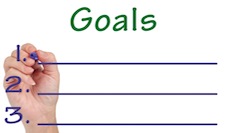 Wantology is a process for clarifying what we REALLY want rather than what we think we want. Most of us do not put a lot of thought or energy into WHY we want the things we think we want. Nor do we spend time thinking about how we feel about a goal or achievement once we do get it. Did it really give us the sense of satisfaction/achievement or peace of mind we sought? And if it did, was it a fleeting pleasure or a lasting sense of contentment? How soon did it take for the new car smell to fade, for the honeymoon to end? And did something better, deeper evolve or was it pretty much an “is that all there is” moment?
Wantology is a process for clarifying what we REALLY want rather than what we think we want. Most of us do not put a lot of thought or energy into WHY we want the things we think we want. Nor do we spend time thinking about how we feel about a goal or achievement once we do get it. Did it really give us the sense of satisfaction/achievement or peace of mind we sought? And if it did, was it a fleeting pleasure or a lasting sense of contentment? How soon did it take for the new car smell to fade, for the honeymoon to end? And did something better, deeper evolve or was it pretty much an “is that all there is” moment?
As a consequence of this lack of self-knowledge, we frequently make bad decisions or choose less than optimum goals. Think of it: In the choice of a life partner, in marriage, one of the most important of life’s decisions, almost half of us make such bad decisions that we end up going through the painful process of divorce. Why are we not better decision makers?
The short answer is simply we do not put enough systemic effort into become better decision makers. Oh, we may agonize over our choices but rarely do we apply our best selves to developing a better process.
How to become an expert at wantology:
1. Write out your goals (strive for several for each of your major roles in life: Work/Career, Personal, Family/Friends, Mental/Education, Health/Physical, Community/Spiritual/Charitable)
2. Think deeply about the WHY of each goal. How will you feel differently after you achieve that goal? What other things make you feel that way?
3. Analyze past goals and achievements: Did you get what you wanted? All of it? Some of it? What worked, what didn’t? Was it worth it? Was it aligned with your true self?
4. Be wary of reflexive or programmed goals; achievement ideals you may have unconsciously picked up from others, peers, parents or advertising, movies, may be so deeply ingrained you haven’t really thought them through, recognized them as imprinted from the outside and not welling up from deep inside you.
5. Start a journal. Write. Create a narrative or outline of goals that worked, that motivated you, excited you, energized you. Understand the why! And just as important, think and write about the goals that did not work. Understand them just as deeply. Journals are terrific for feedback and perspective. It is okay for goals to evolve, morph, change as you grow and learn.
6. Create action plans for all your goals. Include targets, deadlines, and accountability checkpoints. These should be immediate (what can I do today?), medium-, and long-term goals.
7. Don’t worry, none of this will be crystal clear the first time. It is a PROCESS, and an iterative one at that. There are no right answers, just progress. Plateaus and set backs are normal. The best way to sabotage yourself is to get too worked up about it. Understand this, accept it at a deep level. The most successful of us continue this throughout a lifetime, reaching deeper understandings, and with it, a better life.
Closing quotes:
“An average person with average talent, ambition and education, can outstrip the most brilliant genius in our society, if that person has clear, focused goals.” — Brian Tracy
“By recording your dreams and goals on paper, you set in motion the process of becoming the person you most want to be.” — Mark Victor Hansen
“We all need lots of powerful long-range goals to help us past the short-term obstacles.” — Jim Rohn


0 Comments